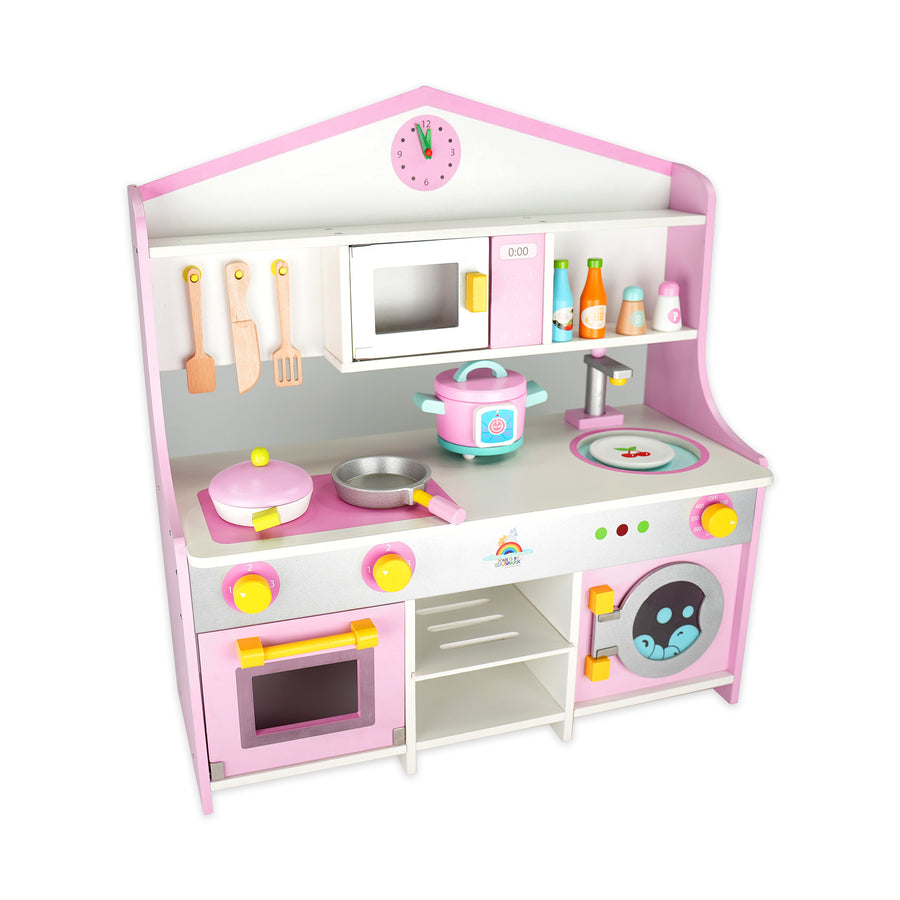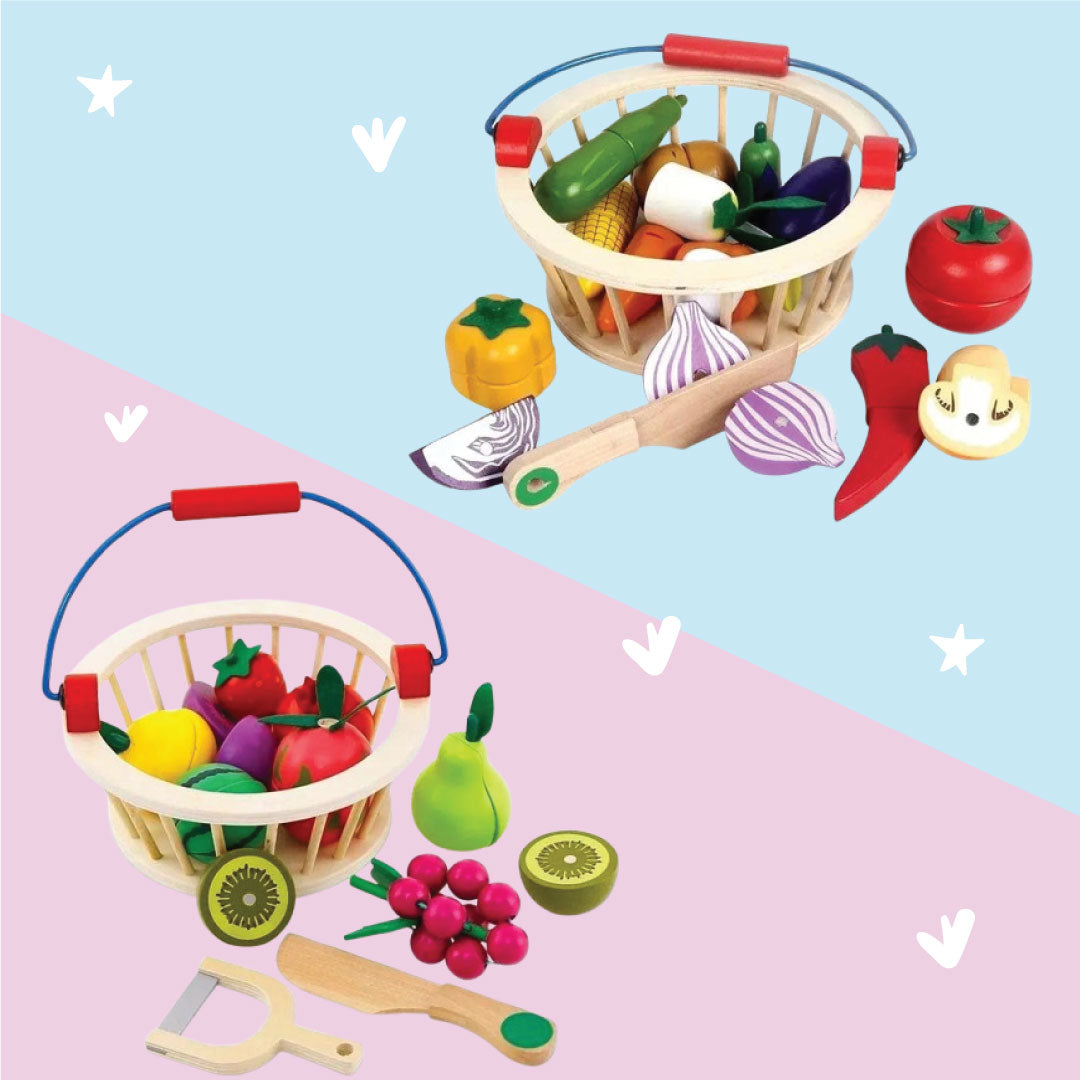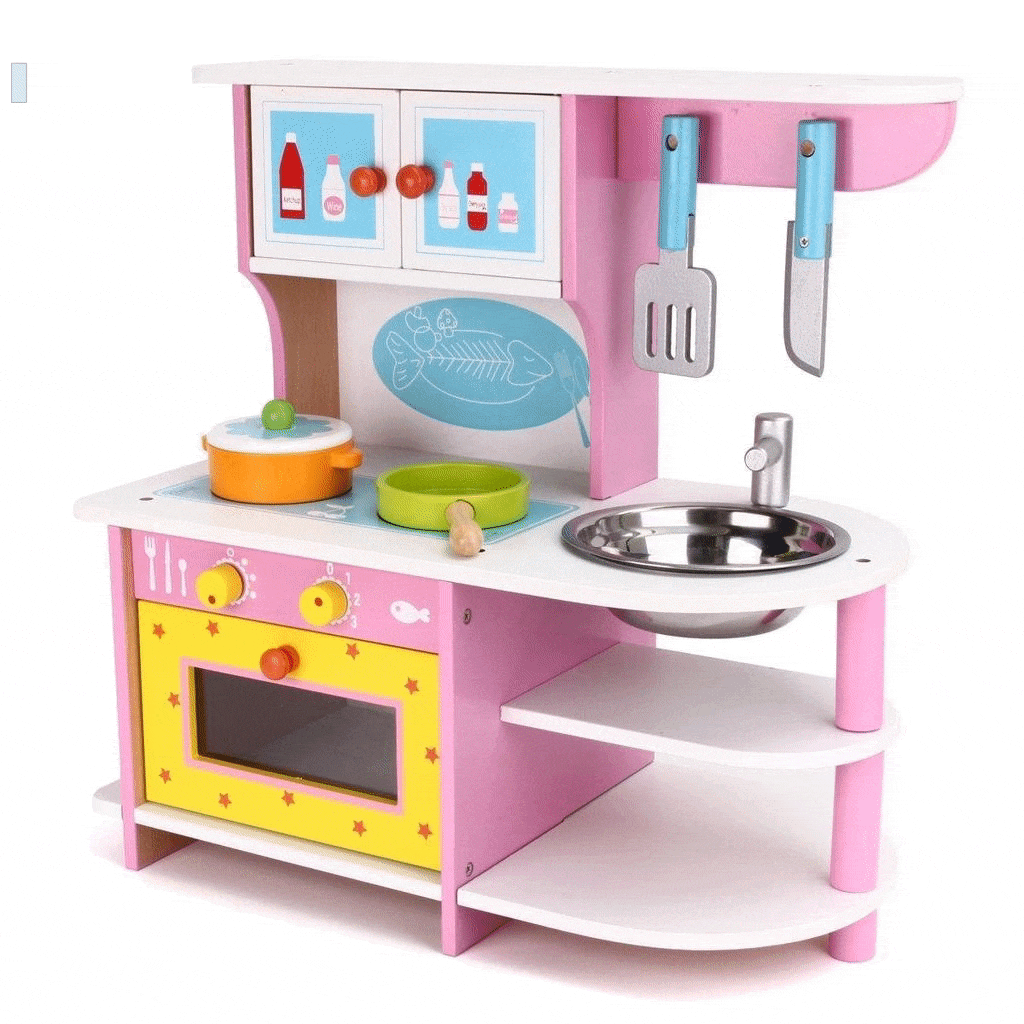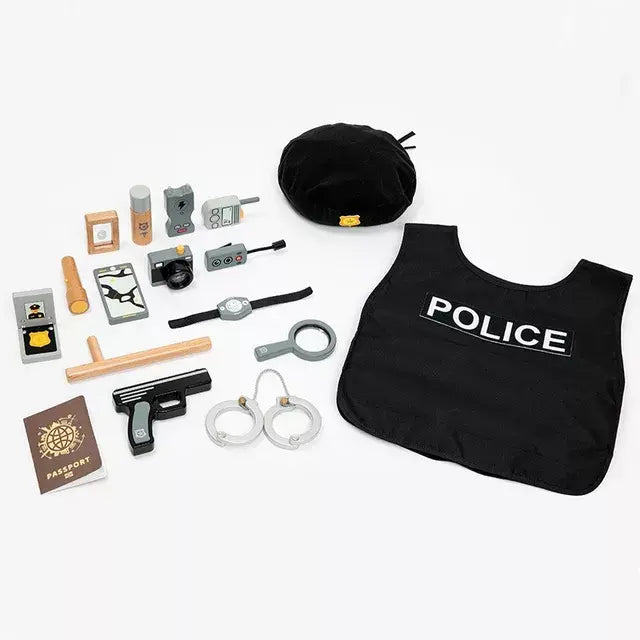
How Pretend Play Wooden Toys Help Develop Essential Life Skills in Kids
In a world filled with noisy gadgets and screen-heavy distractions, pretend play wooden toys offer children a refreshing, imaginative way to grow and build life skills. These beautifully crafted toys don’t just entertain, they help shape a child’s emotional, social, and cognitive development.
Whether it’s a tiny kitchen setup or a police costume, pretend play sparks learning and imagination in ways that stay with kids for life.
What Is Pretend Play and Why Is It Important?
Pretend play, also called imaginative or role play, involves acting out real-world scenarios. Whether they’re ‘cooking’ a meal or ‘saving the day’ as a police officer, children use pretend play wooden sets to make sense of the world around them.
This kind of play nurtures empathy, problem-solving, and creativity. Thoughtfully made toys like those seen in Eduspark’s collections support this kind of development by offering tactile, open-ended play experiences that grow with your child.
Key Life Skills Children Learn Through Pretend Play Wooden Toys
There’s a reason why educators and child psychologists recommend pretend play wooden toys. Beyond playtime joy, they’re powerful tools for building essential life skills:
-
Communication & Language Skills - Kids narrate, question, and interact, boosting vocabulary and fluency.
-
Social Skills - Through shared play, children learn cooperation, empathy, and turn-taking.
-
Emotional Intelligence - With role play wooden toys, kids process feelings, practice patience, and understand perspective.
-
Cognitive Growth - Pretend scenarios encourage problem-solving, storytelling, and flexible thinking in children.
-
Fine Motor Skills - Many pretend play wooden sets stimulate grasping, assembling and recognition skills which enhance coordination and control.
Age-Wise Benefits of Pretend Play Toys
-
Ages 1–2 - At this age, children enjoy mimicking actions like stirring, feeding, or pretending to talk on the phone. Simple, safe props are ideal for initiating early role play.
-
Ages 3–4 - Children get more well verse with the idea of role as they take on characters, act out more complex routines, and learn to play cooperatively with their friends. These years are great for introducing more detailed role play wooden toys.
-
Ages 5–6 and up - Kids begin crafting full stories, switching roles, and tackling pretend-world challenges, building their confidence and social awareness.
Best Pretend Play Wooden Toys That Encourage Skill Growth
We have curated a small guidebook of some standout pieces offered with thought by Eduspark that combine charm, fun and endless learning:
1. Eduspark Wooden Pink and White Kitchen Set

A favorite among aspiring chefs, this pastel-hued kitchen set invites children to explore daily routines, responsibility, and creativity. Wooden Pink and White Kitchen Set
2. Eduspark 12 Pc. Vegetable Cutting Set

This hands-on set supports healthy food conversations and improves hand-eye coordination perfect for kids who love to ‘help’ in the kitchen. Vegetable Cutting Set
3. Eduspark Wooden Kitchen Set

A compact option with massive play value, this pretend play wooden set sparks solo or shared storytelling that boosts confidence and communication. Wooden Kitchen Set
4. Eduspark Wooden Police Costume Set

An engaging role play wooden toy that teaches children about responsibility, safety, and community, all while fueling dramatic adventure play.
These toys are crafted with durability and detail that make brands like ours a preferred choice for modern parents looking to blend play with purpose. Wooden Police Costume Set
Tips for Encouraging Pretend Play at Home
-
Designate a Play Space - Create a simple role play corner with costumes and themed props.
-
Be a part - Participate in their play activities to expand their ideas, help them understand the concept of sharing and emotion recognition.
-
Mix in Real Life Objects - Old wallets, safe kitchen items, or boxes can work wonders.
-
Rotate Toys - Switching themes to curtail loss of interest and thought restriction, for instance kitchen set for one week, doctor set the next week to keeps things fresh and exciting for children.
-
Celebrate Their Creativity - Show interest in their stories, praise their imagination and even treat them once in a while to foster a sense of acknowledgement and encourage them to play, learn & grow.
In Conclusion
Pretend play is more than just make-believe. With the right tools like quality pretend play wooden sets, children develop skills that last a lifetime. Whether you're introducing your child to their first play kitchen or adding to their costume collection, thoughtfully designed toys from brands like Eduspark can make all the difference.
Let their stories unfold, one role at a time
FAQ's - Frequently Asked Questions
1. At what age should children start using pretend play toys?
Children often start as early as 12 to 18 months, introducing them to more detailed pretend play wooden toys help their motor and language skills develop.
2. Can pretend play improve social skills?
Definitely. Kids practice communication, empathy, and teamwork through shared play, especially when using structured pretend play wooden sets.
3. How does role play support emotional development?
Children process feelings and learn empathy through role play wooden toys, giving them a safe space to express and understand emotions.
4. Are pretend play toys suitable for boys and girls?
Absolutely. Imaginative play is for everyone. Whether it’s cooking or patrolling, pretend play with wooden toys, break down gender stereotypes and let kids explore freely.
5. Do pretend play toys help with language development?
Yes. As kids narrate, describe, and converse in their make-believe play world, their vocabulary, sentence structuring, and expression naturally Improve.
